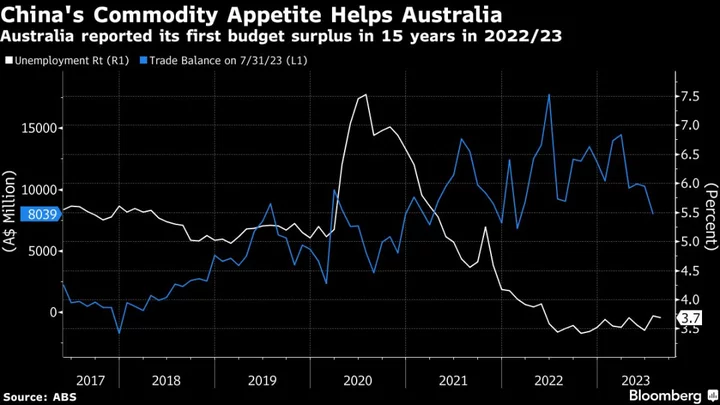The impact of a deeper economic deterioration in China will be mainly felt in Australia through weaker trade and reduced risk appetite in financial markets, Australian regulators said in a quarterly statement.
“A sharp slowdown in China, were it to materialize, would principally transmit to Australia through trade channels and through an increase in risk aversion in global financial markets,” the Council of Financial Regulators said Monday.
China is the biggest buyer of Australian goods from iron ore to coal and food products and a windfall from recent elevated commodity prices helped Canberra report its first budget surplus in 15 years. If Chinese demand were to weaken, it would lower those prices and slim Australia’s trade surpluses, or even return it to deficits.
The CFR, which is chaired by the Reserve Bank governor, also said Australian households and firms had been fairly resilient to 4 percentage points of interest-rate increases and inflation, though the impact had been uneven.
“The share of borrowers falling behind on mortgage payments has started to pick up but from a low level,” it said. “The outlook for employment remains the most important factor in households’ resilience.”
The RBA has described Australia’s labor market as tight with the unemployment rate hovering in a 3.4%-3.7% range since June last year despite the rate hikes.
The CFR’s four members are the Australian Prudential Regulation Authority (APRA), the Australian Securities and Investments Commission (ASIC), the Australian Treasury and the RBA.









